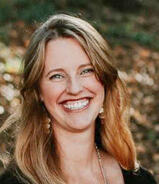|
This post, written by Erin Jantz, originally was published on October 3, 2016, on the ICTG blog. To say that our country is facing a difficult season, would be putting it lightly. In just the last few months, we have seen devastating fires, floods, and tornadoes. People have died, needlessly, and many communities are outraged and seeking justice and peace in the midst of their grief. And all of the live video, along with minute-by-minute reactions, are available and swamping our newsfeeds constantly. Regardless of where we live, we have access to the pain and devastation of neighbors we have never met. It is making us all weary and hungry for relief. What is a spiritual director to do in days like these? A wise friend once told me that training gives us knowledge about, and language to describe, what is happening to us. It does not somehow free, excuse, or save us from experiencing what is happening to us. This is why, more than ever, it is important for spiritual directors to know who their neighbors are in the village of helpers who provide care after a trauma. Knowing who else is equipped to provide care of various kinds helps us take care of our directees, and ourselves. For example, we need the help of doctors, educators, therapists, yoga instructors, and others to help care holistically for those we companion, because we are not those things. I am not a general practitioner in the medical community. I am not a therapist. I incorporate yoga into my self-care, but I am not a yogini. I am a mandated reporter, but I am not a social worker or lawyer or police officer. We directors, do not (necessarily) have those trainings—this is good. This is an opportunity for community within the village of care. Training gives us knowledge about, and language to describe, what is happening to us. Knowing and owning our own limitations professionally helps us to maintain healthy internal boundaries, to not be tempted to be all things to all people, or to give in to savior complexes when we encounter hurt in people’s souls. It is good for us to have developed an awareness of who other trustworthy caregivers are so that we can reliably refer people to the help they need. Feeling good about the fact that I cannot always help everyone provides me with a layer of protection from experiencing vicarious trauma. Knowing our own limitations also allows us to create meaningful space for self-care in overwhelming times. Even when my community and/or clients are suffering, I still need to take care of my family and myself. This means that sometimes I will say no to taking on a new directee or speaking engagement even though I may feel drawn to them. Sometimes I say no to scheduling or rescheduling with someone because I need to have time to meet with my own director, therapist, or doctor—or just have tea with a friend. Knowing that I have colleagues and connections I trust to care for others and me lightens the burden and gives me hope that there is ongoing good in the world. Knowing and owning our own limitations professionally helps us to maintain healthy internal boundaries, to not be tempted to be all things to all people, or to give in to savior complexes when we encounter hurt in people’s souls. The time it takes to build these relationships is best used when there is no present crisis. Find out the names and practices of people you may need to rely on, determine your own needs and processes for refreshment, make a plan for how and when to refer. And above all, pray. For wisdom, discernment, help, healing, and hope even in the darkest of days.
0 Comments
|
�
SPIRITUAL DIRECTION BLOG
From 2012-2020, this blog space explored expanding understanding and best practices for holistic health in the context of spiritual direction.
This website serves as a historical mark of work the Institute conducted prior to 2022. This website is no longer updated. Archives
September 2020
Categories
All
|


 RSS Feed
RSS Feed
